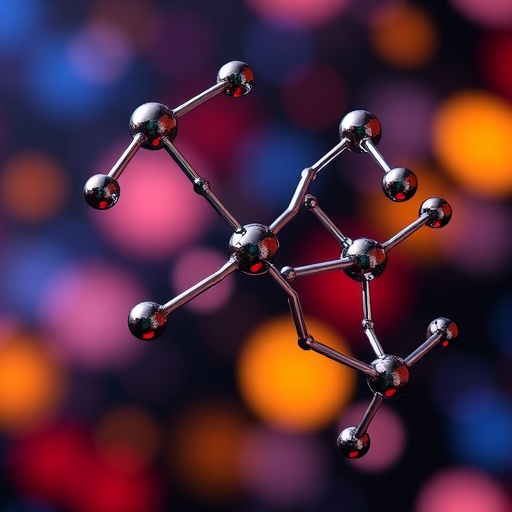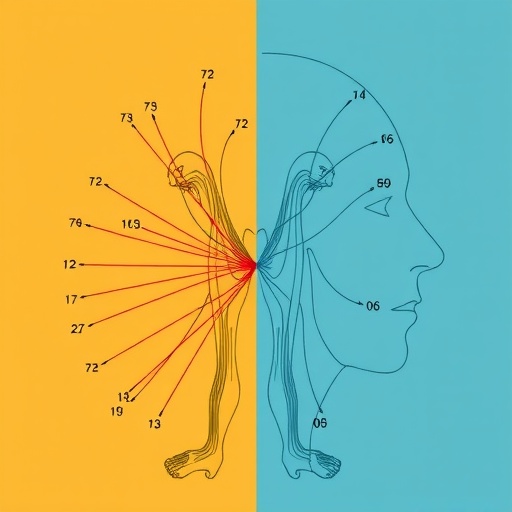PROTECT YOUR DNA WITH QUANTUM TECHNOLOGY
Orgo-Life the new way to the future Advertising by Adpathway
Recent advances in immunotherapy have revolutionized the treatment landscape for B-cell acute lymphoblastic leukemia (B-ALL), a particularly aggressive form of leukemia prevalent among children. However, despite the success of CAR-T cell therapies, which have significantly improved survival rates, a major challenge remains: relapse. Current statistics indicate that more than half of the patients who initially respond to treatment eventually experience a resurgence of the disease, highlighting an urgent need for innovative therapeutic approaches to enhance the durability of CAR-T treatment responses.
Current research, spearheaded by an international team including experts from the Josep Carreras Leukaemia Research Institute and the Spanish National Cancer Research Center (CNIO), has brought forth a promising new strategy that may help mitigate this issue. The team published their findings in a significant study in the journal Blood, revealing insights into the underlying mechanisms of relapse in B-ALL and proposing a novel intervention that could potentially enhance CAR-T therapy’s effectiveness. The findings emphasize the compelling need to investigate and address the intricate interactions between CAR-T cells and leukemia cells.
CAR-T therapies work by genetically modifying a patient’s own T-cells to express chimeric antigen receptors (CARs) that specifically target leukemia cells. Although the initial responses to CAR-T cell therapy have been encouraging, the phenomenon of tumor relapse continues to pose a formidable challenge. Researchers have turned their attention to the relationship between the cancer cells and the immune cells, uncovering crucial interactions that allow leukemia to evade the energetic assault by the CAR-T cells.
A pivotal discovery from this research was that the relapsed B-ALL cells exhibit remarkably high levels of galectin-9, a protein known to play a role in immune modulation. This excess of galectin-9 creates a safety net for the cancer cells, allowing them to manipulate the body’s immune checkpoints, which serve as off switches for immune activation. Simultaneously, CAR-T cells express elevated levels of TIM-3, a receptor that interacts with galectin-9, effectively leading to an immune response feebly directed against the tumor.
What unfolds in this interaction is somewhat alarming: the galectin-9 and TIM-3 interplay acts like a double-edged sword. On one hand, TIM-3’s role as an immune checkpoint normally aids in the dampening of immune responses after an infection or threat has been addressed. On the other, relapsed leukemia exploits this mechanism to hijack CAR-T cells, forcing them into an inactive state and facilitating their evasion from immune detection. This crucial understanding opens the door to a new line of defense, where blocking this inhibitory signal could rekindle CAR-T activity against the leukemia.
The groundbreaking approach devised by the researchers involved generating a TIM-3 decoy. This soluble variant of the TIM-3 protein aims to disrupt the harmful interaction with galectin-9 without overtly activating or inertializing the CAR-T cells. Instead, it seeks to maintain constant immune activity while effectively shielding CAR-T cells from suppression. In preclinical experiments utilizing genetically modified mice harboring human B-ALL cells, the introduction of CAR-T cells engineered to secrete this TIM-3 decoy demonstrated significant improvements in anti-leukemia efficacy and exhibited a longer duration of active response against the cancer.
As the study progresses through preclinical phases, researchers are optimistic that these findings could pave the way toward developing more advanced CAR-T cell therapies. There’s potential not only for improving treatment outcomes for patients suffering from B-ALL but also for extending the use of CAR-T technology to other types of cancers, particularly solid tumors where similar immune evasion tactics are often employed by malignancies.
The findings of this research hold immense promise in shifting the paradigm of how relapsed B-ALL is treated, urging the scientific community to explore enhanced strategies that bolster CAR-T cell efficiency against aggressive malignancies. Future studies focusing on human clinical trials will be critical to validate these findings and ascertain the practical applicability of the TIM-3 decoy approach in diverse patient populations.
This pioneering research not only illuminates the complexity of the immune-evasive tactics employed by B-ALL leukemia but also underscores the pressing urgency of addressing the relapse phenomenon in CAR-T therapies. It also encourages a broader assessment of immune checkpoint pathways’ roles in cancer biology, opening up plethora of avenues for therapeutic exploration.
Through continued innovation, the hope remains that CAR-T therapies will one day achieve not merely temporary remission but sustained and lasting cures for patients afflicted with B-ALL. The collaborative efforts across diverse institutions indicate a collective commitment to overcoming challenges and achieving better clinical outcomes, propelling cancer therapeutics into a new era characterized by enhanced precision and effectiveness.
Thus, as research evolves and methodologies improve, the dream of harnessing the full potential of the immune system against cancer continues to draw nearer. Such advancements could dramatically reshape the future of oncology, transforming the landscape of how diseases like B-ALL are approached and managed.
Subject of Research: B-cell Acute Lymphoblastic Leukemia
Article Title: A TIM-3-Fc decoy secreted by engineered T cells improves CD19 CAR-T cell therapy in B-cell acute lymphoblastic leukemia
News Publication Date: March 16, 2025
Web References: Doi Reference
References: None available
Image Credits: Amparo Garrido / CNIO
Keywords: B-cell Acute Lymphoblastic Leukemia, CAR-T therapy, immune checkpoint pathways, TIM-3 decoy, galectin-9, leukemia treatment, preclinical research, cancer immunotherapy, relapsed leukemia, cancer biology, engineered T-cells, experimental study.
Tags: B-cell acute lymphoblastic leukemia treatmentCAR T cell therapy advancementsdecoy strategy in cancer treatmentdurable treatment responsesenhancing CAR-T efficacygenetic modification of T-cellsimmunotherapy innovationsinternational cancer research collaborationleukemia cell interactionsleukemia relapse challengesnovel therapeutic approaches in oncologypediatric leukemia therapies


 7 months ago
56
7 months ago
56





















 English (US) ·
English (US) ·  French (CA) ·
French (CA) ·